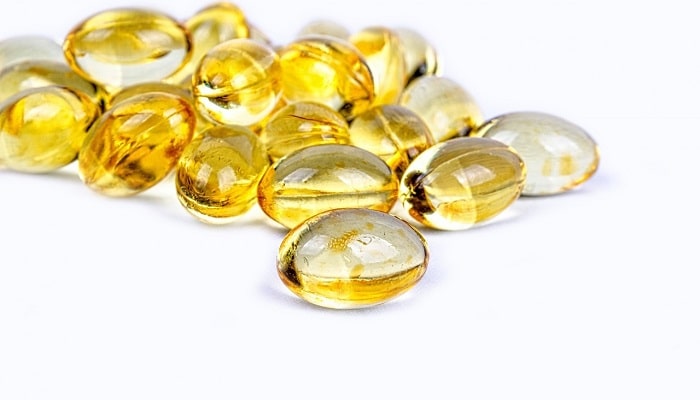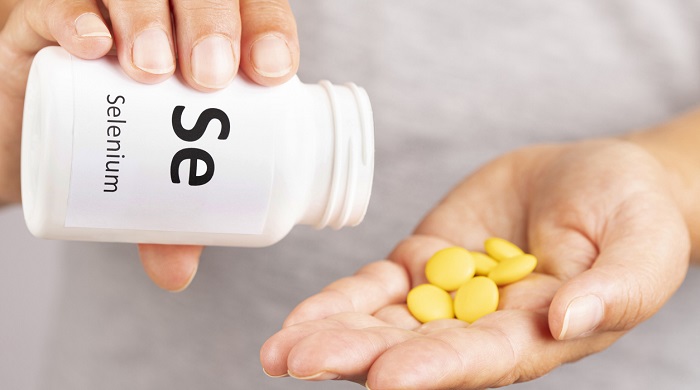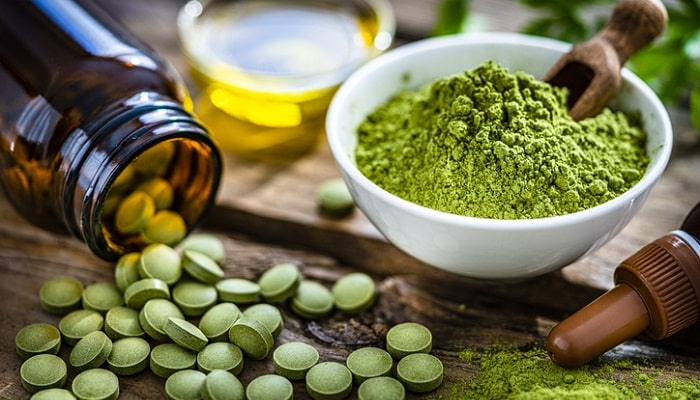Inflammation: an involuntary bodily process that can be normal or abnormal depending on the circumstances.
No matter the cause of your inflammation, it’s important that the inflammatory process works as it should. Normal inflammation should heal on its own, but abnormal inflammation can become chronic. Believe it or not, chronic inflammation contributes to more than 50% of deaths worldwide.1
And while there are many conventional treatments for inflammation, anti-inflammatory supplements may also be able to help.
Read on to learn the common causes of inflammation, how inflammation is treated, and which anti-inflammatory supplements may work best.
What causes inflammation?
Before getting into the causes of inflammation, it’s useful to learn more about the inflammatory process itself.
In most cases, inflammation is the body’s normal response to an injury or infection. When you get a cut on your arm or a bump on your knee, chemicals are released from the damaged cells that cause fluid to leak into the surrounding tissue. White blood cells also come to the site of injury or infection to clear out bacteria or damaged cells.2
Within this process, inflammation occurs. And under normal circumstances, inflammation is simply a part of healing.
So, what causes inflammation? The answer can vary, but common causes of inflammation include:
- Injuries (scrapes, splinters, bee stings, etc.)
- Germs (bacteria, fungi, and viruses)
- Radiation
- Environmental chemicals
- Diets high in refined grains, alcohol, and processed foods
- Microbiome imbalances
- Poor sleep habits
- Stress
Typically, inflammation comes with physical signs like swelling, redness, warmth, pain, or stiffness. But in certain cases, inflammation can present with no outward signs at all. This may be especially true of internal inflammation.1
Sometimes, the inflammatory process lingers or happens in perfectly healthy tissue. This can lead to chronic inflammation, which can open the door to a bevy of health problems.3
While acute, short-lived inflammation (from cuts and scrapes, for example) should resolve on its own, chronic inflammation may require additional treatment. Anti-inflammatory supplements may be one option.
Can supplements help with inflammation?

There is plenty of interest in anti-inflammatory supplements, which means we have a fair amount of research on the subject. And while supplements should never replace standard care (especially in the case of chronic inflammation), they may be a safe complementary treatment option.
Many vitamins, minerals, and other substances are known to possess anti-inflammatory properties. Researchers have looked at everything from vitamin D to turmeric spice to see what may treat inflammation, and the results are promising.4
However, it’s important to note that research results on anti-inflammatory supplements have sometimes been described as mixed and even controversial.5
Before choosing any supplement, it’s best to do your research to learn what the science says. Your healthcare provider may also be able to help you choose the best anti-inflammatory supplements.
Top supplements for inflammation
Nutrition is a vital part of fighting chronic inflammation. And while nothing beats a well-balanced diet, the following dietary supplements may be able to help.
Zinc
A lack of zinc has been linked to an elevated inflammatory response. Without enough of the trace mineral, inflammation may progress and become chronic. This is because zinc plays a key role in regulating oxidative stress (which can cause inflammation) as well as cell signaling involved in the inflammatory process.6
Vitamin D

Research has shown that many inflammatory issues are associated with low levels of vitamin D. Some preliminary evidence has also shown that vitamin D supplementation may help decrease the risk of these issues.7
Curcumin
A substance in turmeric spice, curcumin has been found to have anti-inflammatory properties. Curcumin is thought to reduce inflammatory cell messengers by regulating signaling pathways. It has also been found to reduce the inflammatory response in various chronic health problems.8
Garlic
Garlic has been studied for its anti-inflammatory activity, mainly due to allicin and other bioactive compounds. In clinical trials, garlic consumption has been associated with inflammation reduction in people with hypertension and metabolic syndrome.9
Piperine
Piperine, a bioactive substance found in black pepper, may help fight inflammation in the body. It is thought to reduce the inflammatory response in a range of chronic health problems.10. However, these results have mostly been seen in lab and animal studies as human trials on the subject are scarce.
Selenium

Selenium is a trace mineral that plays a key role in inflammation. In particular, selenium deficiency has been linked to chronic inflammation.11 However, researchers don’t quite seem to understand how selenium may reduce inflammation.
Probiotics
Probiotics are “good” bacteria that can positively alter your microbiome. Various probiotic strains have been found to regulate the gut’s immune response, which includes inflammation. Probiotic supplements may also reduce inflammatory biomarkers in the blood.12
Lactoferrin
A protein found in human and animal milk, lactoferrin may contain anti-inflammatory properties. According to preliminary research, lactoferrin may reduce inflammatory signaling in the brain associated with pain. This means that lactoferrin may help reduce both inflammation and pain.13
Ginger
A systematic review from 2020 discussed 8 randomized controlled trials that reported on the anti-inflammatory effects of ginger supplements. Ginger supplementation was thought to reduce the level of proinflammatory cytokines. Ginger was found to be especially beneficial for people with osteoarthritis.14
Green tea extract

Green tea has been found to increase anti-inflammatory cytokines and decrease pro-inflammatory cytokines. Green tea may also reduce oxidative stress, which has been associated with chronic inflammation.15
Additional research exists on these and other anti-inflammatory supplements. Be sure to talk with your healthcare provider about which one may be your best option. And remember that supplements should never replace standard care for any health problem.
Common treatments for inflammation and when to see a doctor
Not all cases of inflammation require treatment, but some do. While acute inflammation often goes away on its own, the same cannot always be said for chronic inflammation.
Common treatments for inflammation include:
- Heat therapy
- Cold therapy
- Electrical stimulation
- Traction
- Massage
- Acupuncture16
Corticosteroids or nonsteroidal anti-inflammatory drugs (NSAIDs) are often used to treat inflammation as well.
In some cases, lifestyle changes may help reduce inflammation. Some research has shown that losing weight and/or increasing physical activity may improve inflammation.17 Of course, whether lifestyle changes will work for you may depend on the cause of your inflammation.
While inflammation caused by a scrape or bruise doesn’t usually require medical attention, it’s important to know when to see a doctor for inflammation.
If you have any of the following signs of chronic inflammation, be sure to schedule an appointment with your doctor:
- General pain
- Joint stiffness
- Muscle pain
- Chronic fatigue
- Insomnia
- Mood disorders
- Gastrointestinal discomfort or complications (diarrhea, constipation, etc.)
- Weight changes
- Frequent infections17
Your healthcare provider can help you pinpoint the cause of your chronic inflammation and recommend the best treatment options.
 About Brittany Lubeck
About Brittany Lubeck
Brittany Lubeck is a registered dietitian and nutrition writer. She has a Bachelor of Science in Dietetics, a Master of Science in Clinical Nutrition, and began her career as a clinical dietitian. Brittany has always enjoyed research and loves that she can help people learn more about nutrition through her writing.
Sources
1. “Inflammation.” National Institute of Environmental Health Sciences. Niehs.nih.gov.
2. “Immune response.” National Library of Medicine. Medlineplus.gov.
3. Stone, William L., Hajira Basit, & Bracken Burns. Pathology, Inflammation (Treasure Island, FL: StatPearls Publishing, 2022).
4. Mrityunjaya, M., V. Pavithra, et al. “Immune-Boosting, Antioxidant and Anti-inflammatory Food Supplements Targeting Pathogenesis of COVID-19.” Frontiers in Immunology 2020, no.11 (2020): 570122.
5. Jacob, C. S., T. de Alba Carolina, & A. L. de la Garza. “An Evidence-Based Review of Dietary Supplements on Inflammatory Biomarkers in Obesity.” Current Research in Nutrition and Food Science 2, no. 6 (2018).
6. Gammoh, N. Z., & L. Rink. “Zinc in Infection and Inflammation.” Nutrients 6, no. 9 (2017): 624.
7. Zhou, A., & E. Hypponen. “Vitamin D deficiency and C-reactive protein: a bidirectional Mendelian randomization study.” International Journal of Epidemiology 52, no. 1 (2023): 260-271.
8. Hewlings, S.J, & D.S. Kalman. “Curcumin: A Review of Its’ Effects on Human Health.” Foods 6, no. 10 (2017): 92.
9. Ansary, J., T. Y. Forbes-Hernandez, et al. “Potential Health Benefit of Garlic Based on Human Intervention Studies: A Brief Overview.” Antioxidants (Basel) 7, no. 9 (2020): 619.
10. Djaldetti, M. “Piperine – An Immunomodulator and Inflammation Mitigator.” Journal of Clinical and Laboratory Research 2, no. 5 (2021).
11. Huang, Z., A. H. Rose, & P. R. Hoffmann. “The Role of Selenium in Inflammation and Immunity: From Molecular Mechanisms to Therapeutic Opportunities.” Antioxidants & Redox Signaling 7, no. 16 (2012): 705-743.
12. Cristofori, F., V. N. Dargenio, et al. “Anti-Inflammatory and Immunomodulatory Effects of Probiotics in Gut Inflammation: A Door to the Body.” Frontiers in Immunology 12 (2021): 578386.
13. Godinez-Chaparro, B., F. Guzman-Mejia, & M. E. Drago-Serrano. “Lactoferrin and Its Potential Impact for the Relief of Pain: A Preclinical Approach.” Pharmaceuticals 9, no. 14 (2021): 868.
14. Anh, N. H., S. J. Kim, et al. “Ginger on Human Health: A Comprehensive Systematic Review of 109 Randomized Controlled Trials.” Nutrients 1, no. 12 (2020): 157.
15. Reygaert, W. C. “An Update on the Health Benefits of Green Tea.” Beverages 1, no. 3 (2017).
16. Portugal, Salvador E. “Treatment of Pain and Inflammation.” Merck & Co., Inc. Merckmanuals.com.
17. Pahwa, Roma, Amandeep Goyal, & Ishwarlal Jialal. Chronic Inflammation (Treasure Island, FL: StatPearls Publishing, 2022).